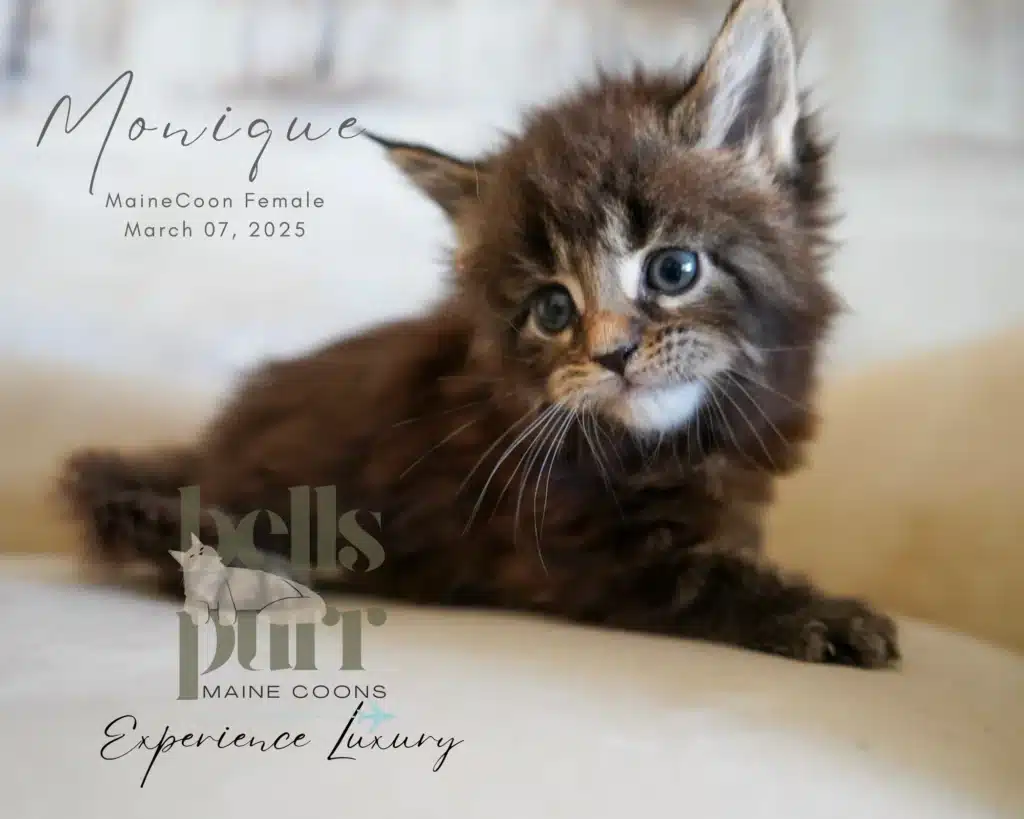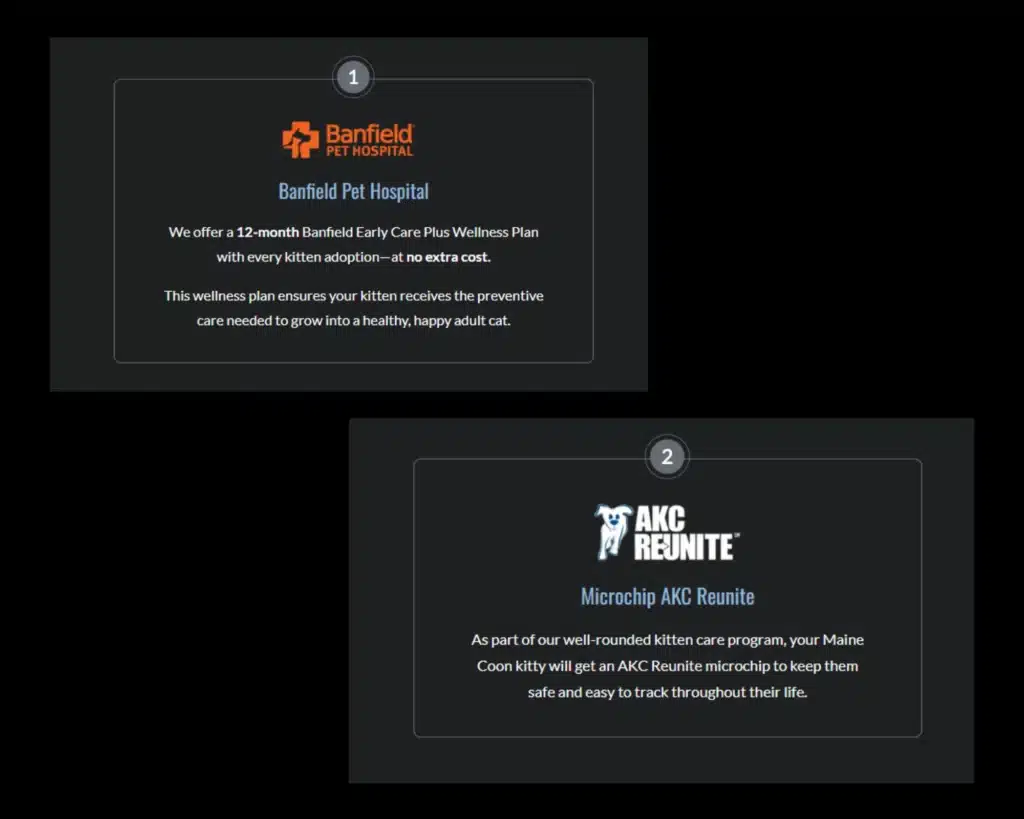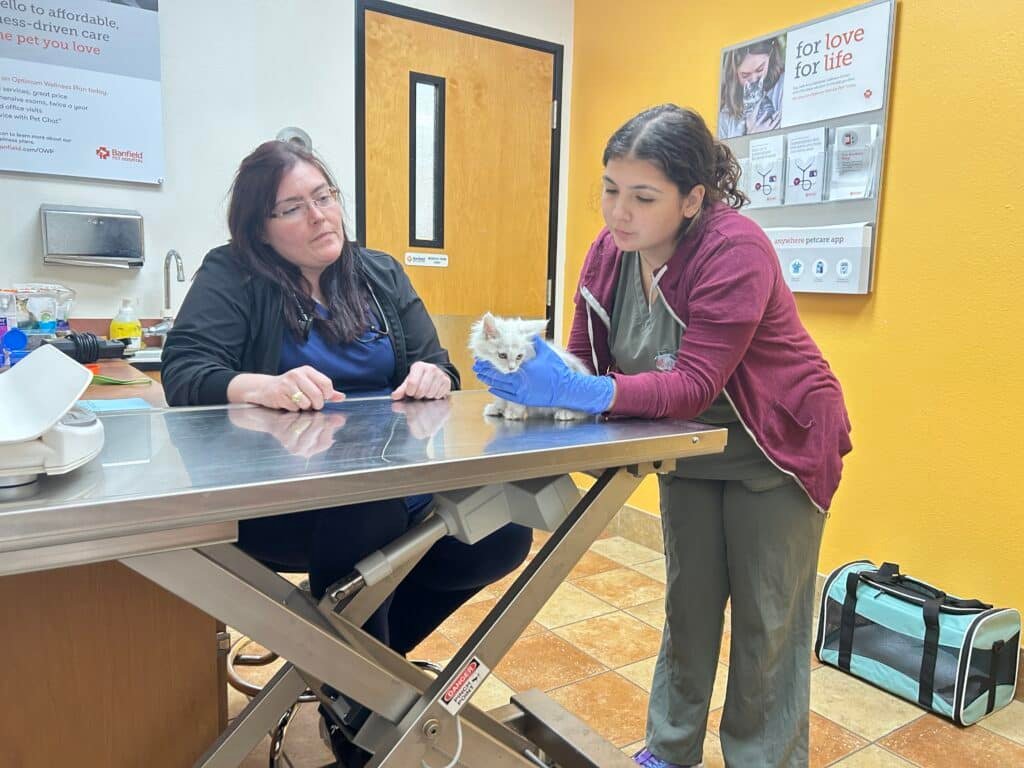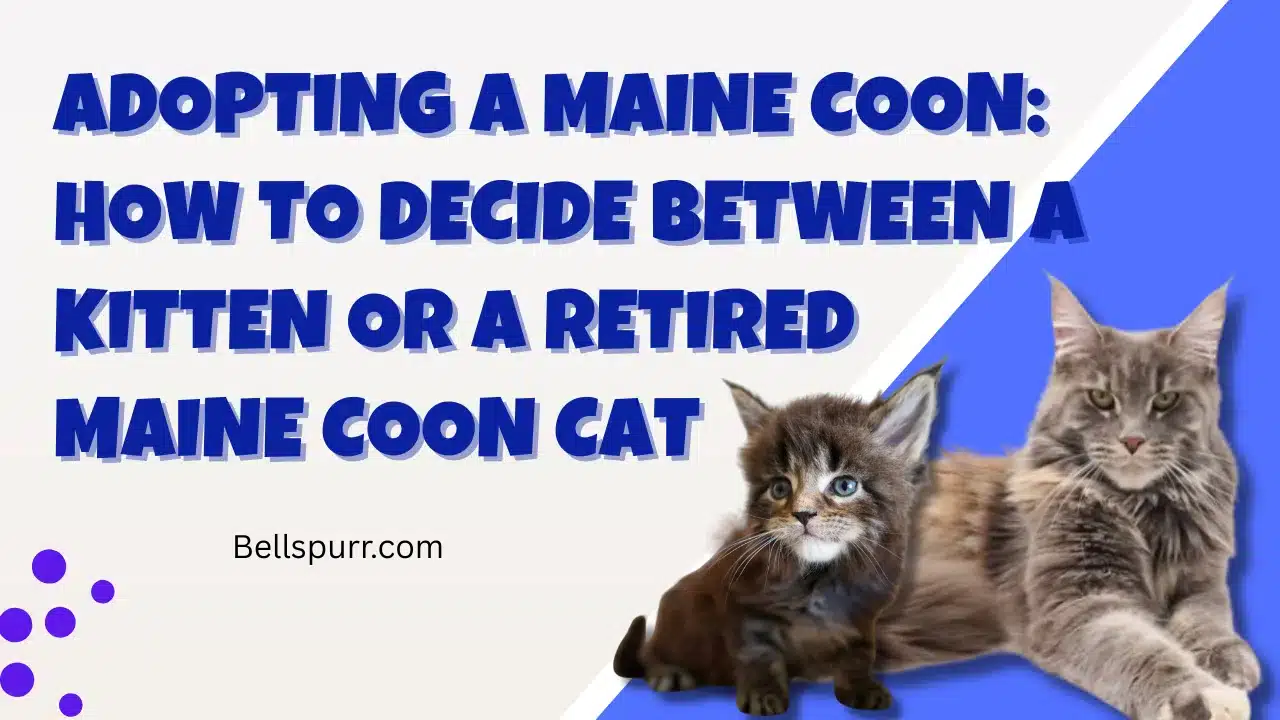Thinking about bringing a Maine Coon into your home? Whether you’re looking for a playful Maine Coon kitten or a calm, retired Maine Coon cat, this guide will help you understand the adoption process and find the perfect fit for your family.
Adopting a Maine Coon is a special experience. With a little guidance, you’ll be ready to welcome one of these friendly, loving cats into your life.
Understanding Your Options: Kittens vs. Retirees
Feature | Maine Coon Kittens | Maine Coon Retirees (Older Cats) |
Age | 8 weeks – 1 year | Usually 7 years and older |
Energy Level | High, playful, curious | Calmer, more settled |
Training Needed | Requires house training, socialization | Often already trained and socialized |
Health Monitoring | Needs regular vet visits, vaccinations | Health status is known, may need ongoing care |
Personality | Still developing | Personality is established |
Cost | Higher from breeders; includes vaccinations, spay/neuter | Lower adoption fees may include medical care |
Time Commitment | High—needs lots of attention | Moderate—enjoys companionship, less demanding |
Adjustment Period | Needs time to adapt and learn | May adjust quickly to new routines |

Adopting a Maine Coon Kitten
- What to Expect: Kittens are full of energy and curiosity. They need a safe, stimulating environment with toys, climbing structures, and plenty of interaction. You’ll be responsible for their early training, including litter box habits and socialization with people and possibly other pets. Their personalities are still forming, so you’ll shape much of their behavior.
- Preparation: Kitten-proof your home by securing wires, removing toxic plants, and ensuring there are no small objects they can swallow. Invest in grooming tools and start a routine early to manage their long coat.
- Cost & Commitment: Kittens from breeders are more expensive, reflecting their age, pedigree, and medical care such as vaccinations and spaying/neutering. They require more time and patience as they grow and learn.
Adopting a Maine Coon Retiree (Older Cat)
Retired Maine Coons are usually older cats who have finished their breeding career or have been rehomed through rescues. These cats are just as loving and may be a better fit for certain households.
- What to Expect: Older cats are calmer, with established personalities. They often come already litter-trained and socialized, making the transition smoother. You’ll know more about their temperament and any special needs they may have.
- Preparation: Prepare a quiet space for your new cat to settle in, and introduce them gradually to your home. Older cats may need less play but still benefit from gentle interaction and a comfortable environment.
- Cost & Commitment: Adoption fees for older cats are usually lower and often include medical care. While some may have ongoing health needs, you’ll have a clearer understanding of what care is required from the start.
Which is Right for You?
To help you decide, ask yourself:
- Do I have the time and energy to raise and train a kitten?
Kittens are full of energy, and they need lots of attention. They’ll rely on you to help them learn things like using the litter box, getting along with other pets, and adjusting to their new home. If you’re ready for the time and energy commitment, raising a kitten can be a lot of fun, but it does require patience and a good amount of work.
- Would I prefer a calmer, lower-maintenance companion?
If you’re looking for a more relaxed cat, an older Maine Coon might be a better fit. Retired Maine Coons tend to be more settled and need less training. They’re already comfortable with their routines and may not require as much attention as a kitten would. If you want a companion who’s more low-key, an older cat could be just what you’re looking for.
- Are there young children or other pets in the home?
Think about the other members of your household—whether that’s children or other pets. Kittens are playful and curious, so they may require more supervision around young children or other animals. Older Maine Coons, on the other hand, may already be used to different situations and could handle the family dynamic better. Make sure to choose a cat that will fit into your home environment smoothly.
- Am I looking for a long-term commitment, or a cat that’s already settled?
Kittens will grow into their adult personalities, and you’ll be with them through every step of their life. If you’re ready for a long-term commitment to guide a kitten as they matures, it can be a rewarding experience. But if you’re looking for a cat that’s already comfortable and doesn’t need as much training, a retired Maine Coon might be a great choice. Either way, you’ll be making a lifelong companion.
If you’re an experienced pet owner with plenty of time and patience, a kitten might be a rewarding choice. If you want a more predictable, settled companion with fewer surprises, an adult or retired cat could be a better fit.
The Adoption Process
1. Research Thoroughly
Start by identifying trustworthy sources for Maine Coon adoption:
- Reputable breedersshould be registered with cat associations like TICA or CFA and be willing to share detailed health records and pedigree information.
- Shelters and rescuesoften have Maine Coons or Maine Coon mixes in need ofloving homes. Many breed-specific rescue organizations exist and can help match you with a cat that fits your lifestyle.
- When speaking with breeders or shelters, always ask about the cat’s medical history, vaccinations, temperament, previous living conditions, and whether it has been spayed/neutered.
Doing thorough research ensures you adopt from an ethical source and increases your chances of bringing home a healthy, well-socialized cat.
2. Application: The Screening Process
Whether adopting from a Maine coon breederor a rescue, expect to go through an application process. This may include:
- Questions about your daily routine, work hours, other pets, and household members.
- Inquiries about your experience with cats or long-haired breeds, as Maine Coons have specific grooming and care needs.
- Some rescues may even conduct home visitsor require references to ensure their cats are placed in safe and suitable environments.
This process is in place to match each cat with a responsible and prepared owner, helping reduce returns and ensure lifelong placements.
3. Understand the Legal and Ethical Responsibilities
Before signing any agreements, carefully review:
- Adoption or purchase contracts– These may include clauses about spaying/neutering, vet visits, or return policies.
- Maine Coon Health guarantees– Reputable breeders often offer a health guarantee for a specific period.

- Local laws and pet ownership regulations– Ensure you’re aware of any community-specific rules about pet ownership, especially for larger breeds like the Maine Coon.
Being informed about your responsibilities protects both you and your future Maine Coon.
4. Prepare Your Home
Once you’re approved andready to bring your Maine Coon home, set up a comfortable, cat-friendly space:
- Cat-proof your homeby securing loose wires, removing toxic plants, and blocking off unsafe areas.
- Provide a large litter box(Maine Coons need more space than average cats).
- Invest in durable scratching posts or cat trees—these cats love to climb and scratch.
- Set up cozy spots for rest and hiding—cats feel safest when they have options for privacy and relaxation.
Preparing for Your Maine Coon
Space and Supplies
Maine Coons are one of the largest cat breeds, so consider:
- Sturdy cat furniture and wide perches: These cats enjoy climbing and jumping, so sturdy furniture is a must.
- Extra-large carriers and beds: To ensure your Maine Coon is comfortable, opt for spacious carriers and soft, large beds.
- High-quality grooming tools: Invest in brushes and combs specifically designed for long fur to prevent matting and tangles. Regular grooming is essential to keep their coat healthy and shiny.
Time and Commitment
These cats are known for their dog-like personalities. They enjoy companionship and play:
- Set aside time for interactive play sessionseach day.
- Regular grooming is essential—plan for at least 2–3 sessions per week, if not daily.
- Budget for premium food, toys, and routine veterinary care, which may include breed-specific screenings for issues like hypertrophic cardiomyopathy (HCM).
Veterinary Care
Choose a vet experienced with Maine Coonsor long-haired breeds. Regular check-ups, vaccinations, and parasite control are essential. Discuss any breed-specific concerns, including:
- Heart health (HCM screening)
- Joint health (hip dysplasia is more common in larger breeds)
- Dental hygiene and weight management

Why Choose Maine Coon Adoption?
Adopting a Maine Coon,whether a kitten or an older cat, means providing a loving home to a breed known for its friendly and adaptable nature. Rescue organizations and responsible breeders offer support and guidance throughout the adoption process, helping you welcome a healthy, happy Maine Coon into your family.
This overview of Maine Coon adoption covers the key steps and considerations, helping you make an informed decision about bringing one of these remarkable cats into your life.
Conclusion:
Bringing a Maine Coon into your home is a rewarding experience that requires thoughtful preparation and long-term commitment. Both kittens and retired Maine Coons make wonderful companions. What matters most is choosing the cat that fits your lifestyle, energy, and commitment level. Whether you decide to raise a kitten or offer a peaceful retirement to an older cat, the love and loyalty of a Maine Coon will quickly become a cherished part of your home.

